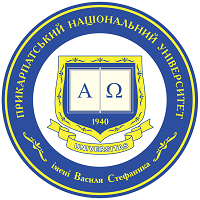INFORMATION WARFARE AS A COMPONENT OF HYBRID WARFARE UNDER CONDITIONS OF RUSSIAN AGGRESSION
DOI:
https://doi.org/10.32782/2312-1815/2024-1-4Keywords:
information war, hybrid war, Russian aggression, goals of information war, methods of conducting information warAbstract
This article examines the role of information warfare in the context of hybrid warfare using the example of Russian aggression against Ukraine and other countries of the world. The topic of information warfare remains in the center of attention of scientists, politicians and the public, and its study is important for understanding and countering contemporary challenges in the geopolitical space. The article examines the importance of information warfare as a component of hybrid warfare, as the information sphere plays a key role in shaping public opinion, influences the mood of the population, and has a significant impact on diplomatic processes and international relations. Understanding such methods and techniques of information warfare is important for countries facing hybrid warfare, especially in the context of Russian aggression. The article also analyzes possible strategies for countering information warfare in the face of Russian aggression, including the development of cyber defense, increasing information literacy of society, and supporting independent mass media. In the context of hybrid warfare, where the line between military and civilian influence is blurred, this article examines the importance of coordination and cooperation between security forces, law enforcement agencies, and other stakeholders to effectively counter information aggression. In addition, the article discusses the importance of education and increasing the information literacy of society so that citizens are able to recognize and respond to disinformation. Particular attention is paid to the cooperation of international partners in the fight against information warfare and strengthening cyber security. The article also draws attention to the need to create international standards and agreements that would regulate issues of cyber security and information warfare. The article highlights the need for in-depth understanding and analysis of information coming to society, as well as the importance of critical thinking and the ability to recognize misinformation. It is important to develop and implement information security strategies, collaborate with international partners, and involve the public in an active role in recognizing and countering information warfare.
References
Войтенко О. Г., Рачковська Л. В. Інформаційна війна Російської Федерації проти України: методи, засоби, наслідки. Київ : Державний інститут керівних кадрів. 2018. С. 16–22.
Геращенко А. М., Поліщук І. М. Інформаційна війна: сучасні виклики та загрози національній безпеці. Київ : Кондор. 2016. С. 155.
Єрмак О. М., Шевченко С. М. Інформаційна війна в контексті гібридної війни Росії проти України. Київ : Інститут національної безпеки. 2017. С. 12–21.
Мацегора О. Інформаційна війна в контексті гібридної війни проти України. Вісник Черкаського державного технологічного університету. Серія: Економічні науки. 2019. № 1 (3), с. 99–106.
Мороз О. В. Інформаційна безпека держави в умовах гібридної війни. Київ : Національна академія державного управління при Президентові України. 2016.
Степаненко В. В., Кириченко О. В., Демченко В. С. Гібридна війна: загроза національній безпеці України. Київ : Інститут національної безпеки. 2015. С. 24–35.
Чубарова Е., Шадур А. Інформаційна гібридна війна Росії проти України: особливості та наслідки. Політологічні читання. 2017. № 1, с. 202–207.
Giles K. Russia’s “Hybrid Warfare”: How the Kremlin is Reinventing War in the 21st Century. The Atlantic Council. 2015.
Hoffman F.G. Hybrid Warfare and Challenges. Joint Force Quarterly. 2011.
Rid T. Cyber War Will Not Take Place. Oxford University Press. 2013.
Watts C. Messing with the Enemy: Surviving in a Social Media World of Hackers, Terrorists, Russians, and Fake News. Harper Collins. 2018.





